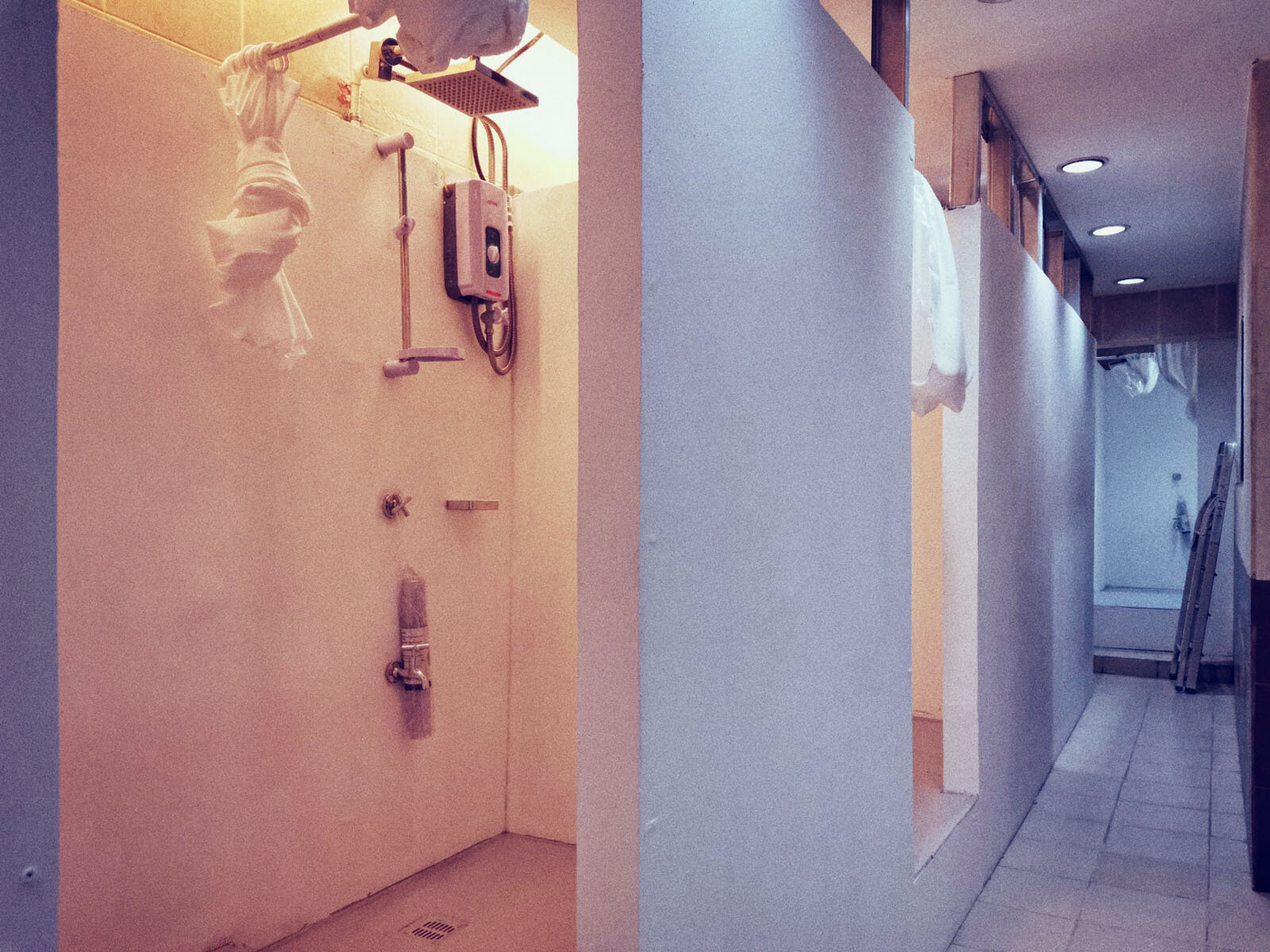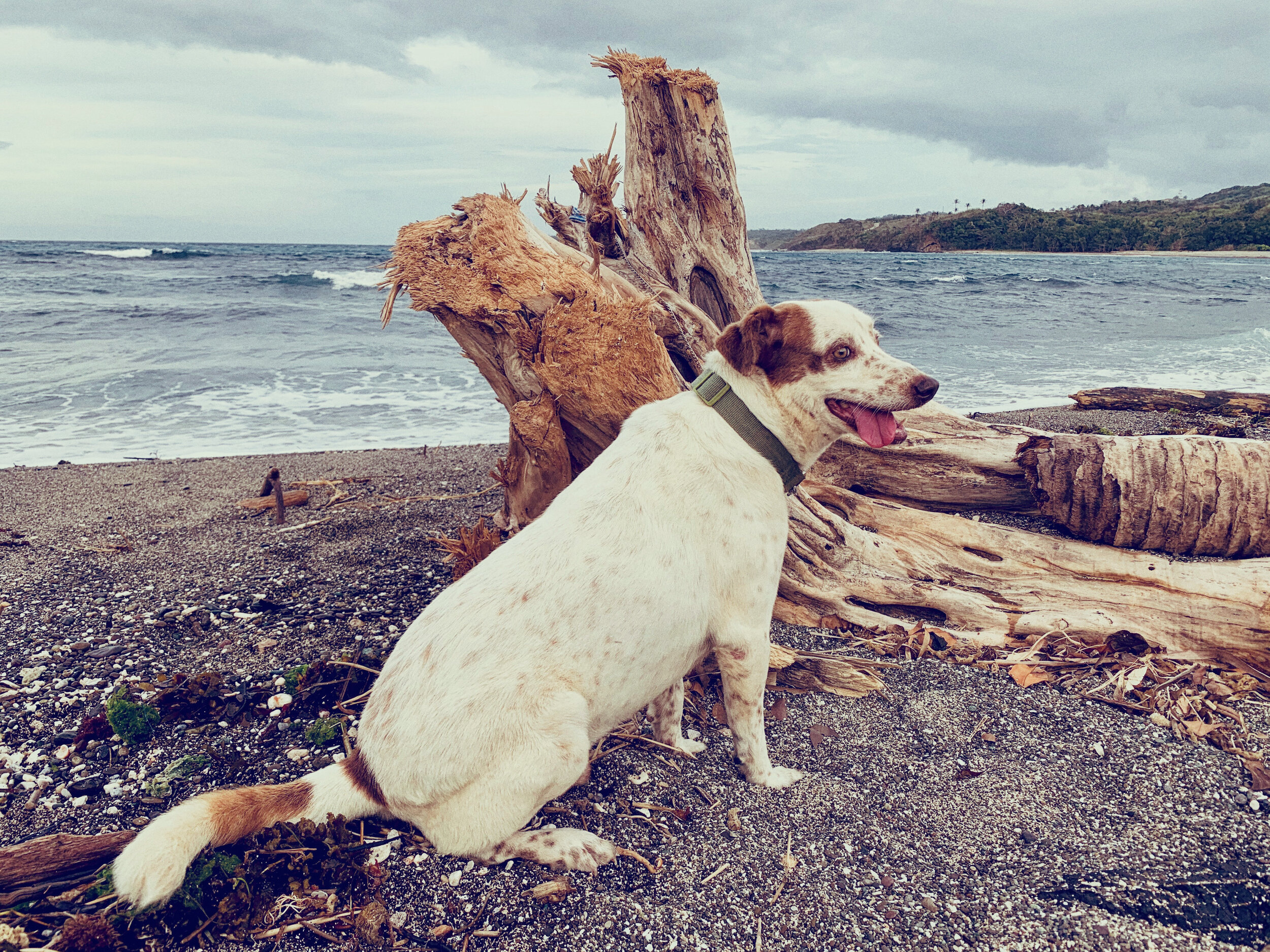Marching Orders
Or, how a former Army officer within the ranks of Ayala’s top executives managed to help raise funds for the poor, build testing laboratories, and complete testing booths with military speed and precision
Words by ALYA B. HONASAN
In his message during a recent online discussion on the private sector’s role in rebuilding society and the economy after COVID-19, Ayala Corporation chairman and CEO Jaime Augusto Zobel de Ayala cited the roles of Sec. Carlito Galvez, chief implementer of the Philippines' Declared National Policy Against COVID-19, and Sec. Vince Dizon, deputy chief implementer, in getting private business involved.
This collaboration was best seen in the private-public coalition Task Force T3 (Test, Trace, Treat), launched with the ambitious goal of ramping up testing capacity in the Philippines. When T3 was launched on April 24, it averaged 4,500 tests a day; as of July 15, it had reached 60,000 maximum testing capacity per day. By the end of July, a total of one million COVID-19 tests had been conducted throughout the country.
In cadence. Jun (second from left) joins ALI President and CEO, Bobby Dy(second from right) and Secretary Charlie Galvez (center) of the Inter-Agency Task Force for the Management of Emerging Infectious Diseases Resolutions (IATF) on a mall inspection. Ayala executives worked closely with government agencies to protect the communities.
Accomplishing a mission of such massive proportions required hard work and military efficiency. As luck would have it, the Ayala Corporation group of companies did have a former military man among its top executives, who eventually became the go-to guy for coordination with various government agencies and the IATF in setting up laboratories, testing centers, and testing booths.
“The T3 Project came out of necessity as the whole country and our health system were not really prepared to face a fast-spreading pandemic caused by this deadly Corona virus,” says Aniceto “Jun” Bisnar, president of Cebu Holdings and chief operating officer of Ayala Land Inc.’s Visayas-Mindanao group, an Ayala executive for 26 years, a member of the Philippine Military Academy’s (PMA) Class of 1985, and an MBM graduate of the Asian Institute of Management.
“When the pandemic started, the only functioning testing facility in the county was the Research Institute for Tropical Medicine (RITM). Now you can see the big way in which the private and government sectors have worked together to increase testing capacity within a short period of time. Otherwise, how are we going to determine who are sick and who are spreading the disease to the population?”
Soldiers of Christ. Caritas Manila volunteers distributed the gift checks to Tondo residents. The decision to release grocery vouchers instead of food packs empowered residents to choose what they needed. (Read more in “Throwing a Lifeline”)
““This Project Ugnayan initiative actually complemented the efforts of the DSWD, which provided assistance through their Social Amelioration Program and other programs in order to help the poor and the hungry.””
Mission 1: fund raising and working among ‘mistahs’
Jun’s involvement in Ayala’s anti-COVID work began in earnest in March 2020, when the Ayala Group, led by FZA and JAZA, spearheaded Project Ugnayan, a private sector led relief effort with about 50 companies working with Caritas Manila, PDRF, and the ADB that distributed some ₱1.7 billion in supermarket vouchers to 7.6 million urban poor individuals in the National Capital Region during the early stages of the Metro Manila lockdown.
Jun and his ALI-Vismin team had been tasked to lead the Ayala Land group fund-raising efforts for Project Ugnayan, under the guidance of ALI President and CEO, Bobby Dy. “The contributions that we raised as a group in Ayala Land and from its various business partners were significant, at more than ₱423 Million donations generated in a short period of time. This does not include the ₱83 Million fund that was raised on a voluntary basis from all Ayala Land employees for COVID-19 related assistance to various hospitals and frontliners as well.
Door to door. Department of Social Welfare and Development Secretary Rolando Joselito D. Bautista oversees the distribution of cash subsidies under the Social Amelioration Program (SAP) to one of 3,016 families in Barangay Fortune, Marikina City on April 20. Jun Bisnar and Secretary Bautista were classmates at the Philippine Military Academy. (Source: The Philippine Information Agency, “DSWD Secretary Bautista oversees distribution of SAP in Marikina City”. September 10, 2020)
“This Project Ugnayan initiative actually complemented the efforts of the Department of Social Welfare and Development (DSWD), which provided assistance through their Social Amelioration Program and other programs in order to help the poor and the hungry,” recalls Jun.
“I had been coordinating with them in my private capacity, since DSWD Secretary Rolly Bautista (former commanding general of the Philippine Army) and some of his key people were my PMA classmates.” A big problem for them was balancing the need for speed during the pandemic and the requirement of COA for accountability and documentation for the government funds that they had to release, initially through politicians and barangay captains, and eventually, direct to the beneficiaries.
“I was also communicating with Secretary Charlie Galvez of the Inter-Agency Task Force for the Management of Emerging Infectious Diseases Resolutions (IATF), who was also a PMA classmate, a former member of the HERO Board of Trustees and the former Chief of Staff of the AFP—that’s how I came to know what was happening in government.” The networking among mistahs (what PMA classmates call each other) proved so effective that Jun was asked by Ayala to get on board for T3.
National effort. Testing equipment was donated to hospitals like the Southern Philippines Medical Center (SPMC) in Davao to ramp up the nationwide testing capacity.
““Ayala group and its other private partners contributed an additional testing capacity of 5,500 per day to the health system of our country.””
Mission 2: Setting up the critical COVID-19 testing labs
At the start of Task Force T3, Jun was designated team leader of the Ayala Group Task Force that was responsible for building COVID-19 testing laboratories, together with Paolo Borromeo of AC Health as sponsor, and Dr Edwin Mercado of Qualimed Hospital, as co-sponsor.
Essentially, this was a collaboration between Ayala Land, AC Health and Ayala-owned Qualimed hospitals, and Makati Development Corporation in ALI real estate developments such as Nuvali in Sta. Rosa, Laguna, Altaraza in Bulacan, and Atria in Iloilo City, as well as in the Mercado Hospital site located in Tanauan, Batangas, Jun reveals.
“All in all—including the donation of testing equipment to the Southern Philippines Medical Center (SPMC) in Davao and the tie-up with University of Cebu Medical Center (UCMed) in Mandaue, Cebu— this means a contribution from the Ayala group and its other private partners of an additional testing capacity of 5,500 per day to the health system of our country.”
Setting up such laboratories in a short period of time was a great challange, Jun points out, because of the many problematic hurdles and critical details. The facility had to meet the standards of RITM and the Department of Health (DOH). “Just securing approval of the construction design with government agencies already took a lot of time, and our MDC construction group had to work double-time. It also took a while for us to acquire all the needed equipment and supplies.”
D-Day. A priest blesses the facilities and machines at the May 2020 launch of the Qualimed facility in Sta. Rosa, Laguna. Ayala Healthcare Holdings and Qualimed collaborated to convert it into a full-scale coronavirus referral hospital by May 1, 2020. (Read more in “Ready for Duty.”)
““Not only were we competing with many countries in the world, we were ‘scrambling’ as well with many local institutions and companies for the same testing equipment and supplies.””
The testing labs were the biggest challenge, Jun says, because it was the first time such structures were being built outside the hospital setting on such a scale. That meant dealing with mechanical requirements like proper air-conditioning, flow of air and air pressure, bio-safety, and bio-security measures per RITM standards. They used the best materials at hand — like 40 footer container vans in Nuvali, existing pre-fabricated building panels for Iloilo and Bulacan—but followed a uniform design and layout.
“We even had to provide nurses to monitor the health of the workers building these laboratories and also the swabbing booths. Everything was a challenge, including the sourcing and delivery of materials and laboratory equipment, given that we were on lockdown and there was no transportation available.”
The Ayala Group Task Force also had to import all the equipment and supplies for the reverse transcription polymerase chain reaction (RT-PCR) tests, the gold standard for COVID-19 virus detection from China, which had to be brought in with help from the Philippine Red Cross, Office of Civil Defense in Camp Aguinaldo and the IATF.
AC Health president and CEO Paolo Borromeo and Secretary Charlie Galvez, inspect the Qualimed facility. As early as January, the AC Health team had been monitoring the spread of COVID-19. (Read more in “Looking After Our Own.”)
It was quite a feat, considering “the huge demand for testing equipment and supplies all over the world,” Jun says. “Not only were we competing with many countries in the world, we were “scrambling” as well with many local institutions and companies for the same testing equipment and supplies. After securing these testing equipment in Manila, we then had to deliver them in other parts of the country with limited transportation options available. The Southern Philippines Medical Center doctors and Davao LGU officials led by Mayor Sara Duterte were very thankful to the Ayala Group, as SPMC was the main COVID-19 referral hospital for many provinces in Mindanao.
“Then we needed to hire qualified health personnel to actually operate the equipment. Our AC Health and Qualimed team worked very closely with DOH and RITM so that our Qualimed medical personnel could be properly trained, tested and certified, allowing us to secure all the permits to operate all the said laboratories.”
Medical technicians collect samples at the testing booths at Palacio de Maynila, one of the mega-testing centers that were set up through the partnership of private and government organizations. Photo by Kriz John Rosales of Philstar.com
Mission 3: COVID-19 testing booths across Manila
Jun became the man to call when you needed COVID testing booths fast. Aside from large quarantine facilities, Ayala also donated almost 300 testing booths for four main swabbing centers opened the same week as the World Trade Center: 65 booths for the Palacio de Maynila tent along Roxas Blvd., 72 for the Mall of Asia Arena, 54 for the Enderun Colleges in Taguig, and 96 for the Philippine Arena in Bulacan. Some were also deployed at the NAIA International Airport specifically for the tide of overseas Filipino workers (OFWs) who needed to be tested before heading home to the provinces.
“These swabbing booths could handle more than 5,000 people per day,” Jun reports. “They were able to test 55,000 individuals in the Metro Manila area within three weeks. These centers played a major role in testing more than 150,000 repatriated OFWs, most of whom were quarantined in hotels and ships in Manila.”
The booths were also specially designed to protect the medical health workers doing the swabbing, the medical technologists, and the assistants who recorded and secured the samples before these were transported to processing labs, like that of the Red Cross.
Reinforcements. Workers add the final touches to testing booths in the World Trade Center. “The conversion of the World Trade Center Metro Manila into a COVID-19 quarantine facility is testament to what the public and private sectors can achieve when they work together for the good of our country,” said BCDA President Vince Dizon. The project involved several #AyalaCitizens from MDC and Manila Water, and ₱29.5 million in contributions from partner corporations.
““This pandemic will have a lasting impact on how the world will move forward to develop the economy and to protect people’s health into the future.””
Mission Accomplished
Jun’s vast experience with the Ayala Group certainly came in useful. He started out as a manager in 1994, and progressed to leading and managing large estate developments like Bonifacio Global City, Nuvali in Laguna, Arca South in Taguig, Ayala Westgrove in Cavite, and Ayala Greenfield Estates in Calamba, before going southwards again with the Cebu IT Park, Cebu Business Park, Seagrove in Mactan, Gatewalk in Mandaue, South Coast City (SRP) in Cebu City, and Habini Bay in Misamis Oriental, and taking on his present role handling the Visayas and Mindanao areas.
“This pandemic has brought a great amount of uncertainty and fear to the market, and nobody is spared,” he says. “It has greatly changed the way we view things in our work, daily life, the way we deal with family and friends. This will have a lasting impact on how the world will move forward to develop the economy and to protect people’s health into the future.”
Jun Bisnar
What inspires him to keep going, Jun says, is wanting to help the people who are suffering from this unprecedented health crisis. “All you see every day is bad news. Our thousands of frontliners are sacrificing a lot for the country—not only medical frontliners, but the many government workers, our soldiers, the police, NGOs and many volunteers. When you see and feel the impact of their sacrifices and what they are doing for the country, you feel that you need to do more.
“It’s like we are on a big ship with many holes that we have to help plug all at the same time, or all of us will go down with the ship. Even if we are facing an invisible enemy, we must do anything within our individual and collective capacities and means to help the whole country.” #
PUBLISHED SEPTEMBER 11, 2020








































